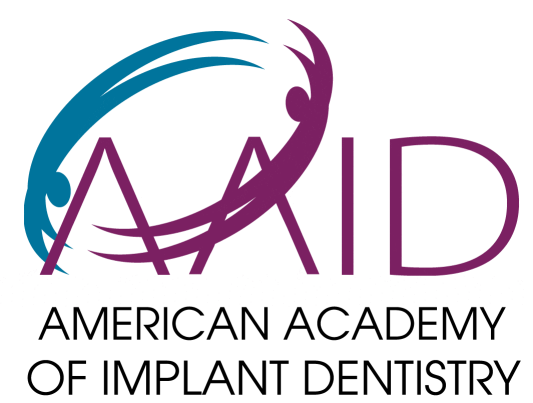What to do for a broken tooth crown, and how should you handle this dental emergency to protect your oral health? A dental crown serves as a crucial protective barrier for damaged or weakened teeth, restoring both function and appearance. However, despite their durability, crowns can sometimes crack, chip, or completely detach due to various factors, leaving patients confused about immediate care and long-term treatment options.
At Lansdowne Family Dental, we regularly treat patients experiencing crown damage and understand the concern and discomfort this situation can cause. Whether your crown has partially loosened, completely fallen out, or suffered visible damage, knowing the proper response can mean the difference between a simple repair and more extensive dental work.
In this comprehensive emergency guide, we’ll examine the common causes of crown damage and failure, outline immediate steps to take when your crown breaks or becomes loose, explore the various treatment options available for different types of crown damage, discuss preventive measures to protect your dental restorations, and provide you with expert guidance on when to seek emergency dental care versus scheduling a routine appointment.
What is a Broken Dental Crown?
A broken dental crown refers to a situation where the protective cap covering a tooth becomes cracked, fractured, or entirely dislodged. This can expose the underlying tooth to potential damage and cause discomfort. Broken dental crowns can result from various factors, ranging from accidents to wear and tear over time.
How to Fix Broken Dental Crowns?
If you find yourself with a broken dental crown, don’t fret. There are several effective treatment options available:
- Dental Bonding: For minor cracks, dental bonding can repair the crown’s surface and restore its integrity.
- Dental Veneer: In some cases, a dental veneer can be used to fix a small chip or crack on the crown.
- Crown Replacement: If the damage is extensive, your dentist may need to replace the entire crown to ensure proper protection.
- Root Canal: If the underlying tooth is damaged, a root canal procedure might be necessary before placing a new crown.
- Dental Implant: If the crown cannot be salvaged, a dental implant might be considered as a long-term solution.
For residents of Ashburn, Leesburg, and Lansdowne, VA, choose Lansdowne Family Dental for quality dental care. We offer various services with a patient-centric approach. Start your dental journey with us. Contact us!
Causes of Broken Dental Crowns
Dental crowns are designed to be durable, but they can still break under certain circumstances. Some common causes of broken dental crowns include:
- Biting Hard Substances: Chewing on hard objects like ice, pens, or hard candies can exert excessive force on dental crowns, leading to cracks or fractures.
- Trauma or Injury: Accidents or physical trauma to the face can cause dental crowns to break.
- Tooth Decay: If the underlying tooth experiences decay, it can weaken the crown’s foundation, making it more susceptible to breaking.
- Age and Wear: Over time, dental crowns can weaken due to regular wear and tear, increasing the risk of breakage.
- Poor Fit: Improperly fitted crowns can experience uneven pressure during biting, increasing the chances of fracture.
How To Prevent Broken Dental Crowns?
While some accidents are unavoidable, there are steps you can take to reduce the risk of breaking a dental crown:
- Avoid Hard Foods: Steer clear of chewing on hard substances like ice or using your teeth as tools.
- Wear a Mouthguard: If you engage in contact sports, wearing a mouthguard can protect both your natural teeth and dental crowns.
- Regular Dental Check-ups: Routine dental visits allow your dentist to identify any issues with your crowns and address them before they worsen.
- Address Tooth Grinding: If you grind your teeth (bruxism), consider wearing a nightguard to prevent excessive pressure on your crowns.
FAQs about Broken Dental Crowns:
Q: Can I prevent breaking my dental crown?
A: While accidents can happen, you can reduce the risk by avoiding hard foods and wearing protective gear during sports.
Q: Is a broken dental crown painful?
A: A broken crown might expose the sensitive inner layers of your tooth, leading to discomfort or pain.
Q: Can I repair a broken crown at home?
A: It’s not recommended to fix a broken crown at home. Consult your dentist for proper treatment.
Q: How long does crown replacement take?
A: The process varies, but it usually takes a couple of dental visits to complete the replacement procedure.
Q: Are there temporary solutions for a broken crown?
A: Dental cement or temporary adhesive can offer a short-term solution, but consult your dentist for a permanent fix.
Q: Can a broken crown lead to further dental issues?
A: Yes, a broken crown can expose your tooth to bacteria and decay if not addressed promptly.
Conclusion:
Dealing with a broken dental crown might seem daunting, but modern dentistry offers a range of effective solutions to restore your smile and dental health. From preventive measures to various treatment options, taking the right steps can help you address this concern with confidence. Remember, if you experience a broken dental crown, consult your dentist promptly to determine the best course of action for your case.






